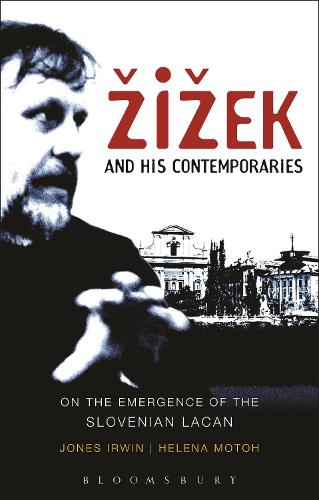
iek and his Contemporaries: On the Emergence of the Slovenian Lacan
(Paperback)
Available Formats
Publishing Details
iek and his Contemporaries: On the Emergence of the Slovenian Lacan
By (Author) Dr Jones Irwin
By (author) Dr Helena Motoh
Bloomsbury Publishing PLC
Bloomsbury Academic USA
19th June 2014
United States
Classifications
Tertiary Education
Non Fiction
Psychoanalytical and Freudian psychology
199.4973
Physical Properties
Paperback
232
Width 138mm, Height 216mm
272g
Description
In recent years, the popularity of the inimitable Slavoj iek has perhaps cast a shadow over the collective influence exerted by Slovenian intellectuals on modern day philosophy. Yet despite his image as an isolated genius, this timely book relocates iek as a thinker whose ideas are born of a specifically Slovenian context. Although only coming to international notice in the early 1990s, the Slovenian school needs to be understood as the culmination of a series of intellectual, artistic and political movements inextricably connected to the quest for the succession of Slovenia from Yugoslavia. These developments in thought must also be seen in the light of one of the giants of Continental philosophy: Jacques Lacan. Featuring brand new interviews with three of its forerunners - iek, Mladen Dolar and Alenka Zupancic - this fascinating account details each philosopher's individual concerns, whilst shedding light on the complex genealogy and continuing development of the Slovenian Neo-Lacanian school. Rarely are we afforded such an opportunity to study the birth of a philosophy from a seminal moment in modern history.
Reviews
This is a wonderfully informative book, a kind of "Once upon a Time, Ljubljana," in which elevated philosophical debates and emerging political and cultural realities keep crossing over into each other's frames. It tells the story -- not anecdotally, but analytically, with a wealth of theoretical sophistication -- of how, from the tiny country of Slovenia, Slavoj iek and his closest colleagues, Mladen Dolar and Alenka Zupancic, encouraged and inspired by a phalanx of talented artists and intellectuals, launched a distinctive school of thought (both Lacanian and Marxist) with universal appeal. The real accomplishment of the "back story" is that it sets this thought into relief; that is, it tarnishes neither its distinction nor its universality. -- Joan Copjec, Professor of Modern Culture and Media, Brown University, USA
This book is a long-awaited contextual account of the "iek-phenomenon", discussing its origins in the Slovenian School and beyond. Academically impeccable and eminently readable, with a bonus of three thoroughly enjoyable interviews. -- Fabio Vighi, School of European Languages, Translation and Politics, Cardiff University, UK
Author Bio
Jones Irwin is Lecturer in Philosophy and Human Development in the Education Department at St Patrick 's College, Dublin City University, Ireland. Helena Motoh is Lecturer in Philosophy at the University of Primorska, Slovenia.
